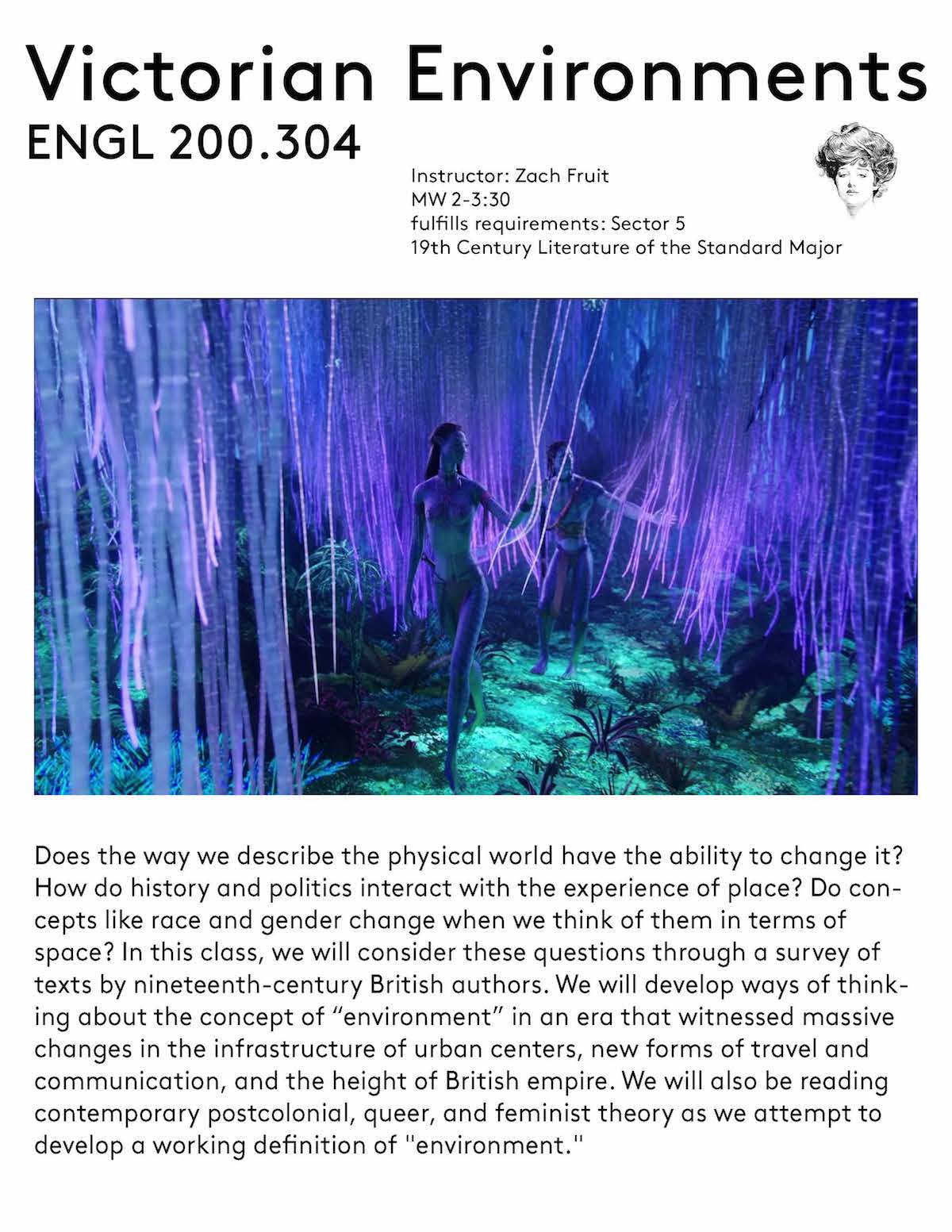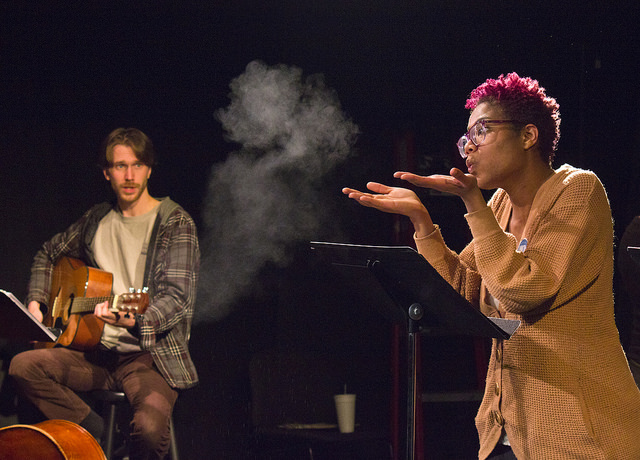Spring 2019
GRMN 150
Simon Richter
Tuesday/Thursday 1:30 - 3:00 PM
As a result of climate change, the world that will take shape in the course of this century will be decidedly more inundated with water than we're accustomed to. The polar ice caps are melting, glaciers are retreating, ocean levels are rising, polar bear habitat is disappearing, countries are jockeying for control over a new Arctic passage, while low-lying cities and small island nations are confronting the possibility of their own demise. Catastrophic flooding events are increasing in frequency, as are extreme droughts. Hurricane-related storm surges, tsunamis, and raging rivers have devastated regions on a local and global scale. In this course, we will turn to the narratives and images that the human imagination has produced in response to the experience of overwhelming watery invasion, from Noah to New Orleans and beyond. Objects of analysis include mythology, ancient and early modern diluvialism, literature, art, film, and commemorative practice in countries and regions such as the United States, China, India, Thailand, the Middle East, the Netherlands, and Peru. The basic question we'll be asking is: What can we learn from the humanities that will be helpful for confronting the problems and challenges caused by climate change and sea level rise?
Spring 2019
PHIL 079-301
Derek Skillings
Monday/Wednesday 3:30 - 5:00 PM
In this course we will investigate some of the ethical issues that arise from our relationship with the environment. Topics may include : What are our responsibilities toward the environment, as individuals and as members of institutions? How do our responsibilities toward the environment relate to other ethical considerations? Do non-human animals/species/ecosystems have intrinsic value? What should conservationists conserve?
Spring 2019
GRMN 544-01/COML 562-401/URBS 544-401/ANTH 543-401
Bethany Wiggin
Wednesday 2:00-5:00 PM
Work in environmental humanities by necessity spans academic disciplines. By design, it can also address and engage publics beyond traditional academic settings. This seminar explores best practices in public environmental humanities. Students receive close mentoring to develop and execute cross-disciplinary, public engagement projects on the environment, including PPEH’s ongoing public engagement projects on urban waters and environmental data. Training and workshops cover topics including: grant writing, project management and best practices for collaborative research, writing and editing for blogs and micro-blogs, podcasting, sonic and visual research practices. We take field trips and host guests, including PPEH's visiting writers and artists, and we will participate in two workshops led by our 2019 Artist in Residence, Roderick Coover. Course assignments include 2 short-form essays (course blog posts) about your PPEH Research project, participation in all PPEH public programming, and, for Graduate Fellows, six-week editorship of the PPEH blog. This broadly interdisciplinary course is open only to Graduate and Undergraduate Fellows in the Penn Program in Environmental Humanities (PPEH).
Spring 2019
ENGL 200-304
Zach Fruit
Monday/Wednesday 2:00 - 3:30 PM
Does the way we describe the physical world have the ability to change it? How do history and politics interact with the experience of place? Do concepts like race and gender change when we think of them in terms of space? In this class, we will consider these questions through a survey of texts by nineteenth-century British authors. We will develop ways of thinking about the concept of “environment” in an era that witnessed massive changes in the infrastructure of urban centers, new forms of travel and communication, and the height of British empire.
This course will explore a wide range of nineteenth-century texts with a focus on "environment" as a phenomenon that is deeply entangled with realism and modernism. We will read fiction by Jane Austen, George Eliot, Henry James, and Joseph Conrad as well as poetry by William Wordsworth and Christina Rossetti and works by Dorothy Wordsworth, John Ruskin, and Charles Darwin. We will also be reading contemporary postcolonial, queer, and feminist theory as we attempt to develop a working definition of "environment." The syllabus will include a short walk as an opportunity to focus our discussion of sensation and perception.
This Junior Research Seminar is designed to introduce students to a variety of critical research skills and academic writing methods. In addition to a final research paper, assignments will include a short annotated bibliography, experiments in visual analysis, and creative writing exercises.

Spring 2019
STSC 381-401
Britt Dahlberg
Wednesday 2:00-5:00 PM
We live amidst a constant stream of messages, practices, and regulations about things, behaviors, or relationships deemed “toxic.” Within environmental health in particular, all sorts of actors grapple with complex decisions about what it means to live with materials and anticipate the ways they can interact with human health and the environment – at present through the distant future. What exactly do we mean when we categorize some substances as toxic, and by extension others as safe? Are there other ways of managing uncertainty or conceptualizing harm? How are these concepts built into broader social structures, economics, and regulations? What other work are they used to do? In this course, we will explore major social science approaches to toxicity and apply these theories to our own analysis of examples from the contemporary United States, and in particular, to a robust oral history collection with residents, developers, and government scientists grappling with these questions just outside of Philadelphia.
This course grows out of scholarship in the history and anthropology of environmental risk, and health, as well as direct ethnographic, historical, and oral history research at a site outside of Philadelphia grappling with the meaning of materials that remain on site after past industrial manufacturing. In this course, students will gain an introduction to oral history and analysis of in-depth interviews, and introduction to key approaches in theorizing toxicity. By connecting life experiences of residents, government scientists and others, at an actual site, with the literatures we read in class, students will think critically about the ways the literatures we engage do and do not fully encompass the experiences and concerns that are intertwined with toxicity for actual people grappling with making sense of uncertain harms amidst urban planning.
https://reachambler.sciencehistory.org/
http://www.americananthropologist.org/2018/10/23/cities-and-urban-planning-missing-dialogues/

Spring 2019
STSC 207-301
Lawrence Kessler
Tuesday/Thursday 12:00 - 1:30 PM
This course examines how agricultural science has shaped the modern world. It focuses on the lands touching the Pacific Ocean during the industrial era--from the late eighteenth century to the late twentieth century--to highlight how scientific knowledge of the natural world and regimes of agricultural production interacted to change spatial relations of power between distant places. We will explore the history of botany, chemistry, and entomology in the context of European and Euro-American exploration incursions into the Pacific. We will also explore the history of once-exotic but now commonplace things that sustain our existence, from sugar, rice, and palm oil to guano. In short, this course examines how ideas about nature, methods of converting nature into commodities, and nature itself all influence each other. Students will work throughout the semester to gain knowledge about the intersection of agriculture, science, and empire in the Pacific, while also developing and strengthening their ability to conduct historical research and produce original arguments.
